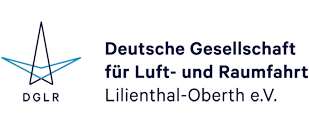DGLR-Publikationsdatenbank - Detailansicht
Autor(en):
C. Bach, M. Buchholz, T. Dorau, S. Fälker, A. Gloder, A.G. Joseph, M. Propst, G. Scarlatella, J. Sieder-Katzmann, A. Vennitti, M. Tajmar
Zusammenfassung:
This contribution presents an overview of the research and development activities within the research group for Space Transportation, which is part of the Institute of Aerospace Engineering at Technische Universität Dresden. The research focuses mainly on chemical propulsion systems, including the cutting edge academic investigations on additively manufactured aerospike engines and their thrust-vector control for various applications, such as retro-propulsion and in-space thrusters. Two of the major challenges regarding aerospike engines are the higher thermal load and the increased design complexity when compared to a bell nozzle engine, both of which might be resolved using additive manufacturing (AM). Approaches using AM with a nickel superalloy are investigated at Technische Universität Dresden. One is conducted in the framework of the ASPIRER project, in which a kerosene-hydrogen peroxide 6 kN aerospike engine is developed. Another project, called CFDµSAT, is dedicated to the development of a 500N ethanol-liquid oxygen engine. Furthermore, aerodynamic thrust vector control on linear and annular aerospike nozzles is investigated. Within the frame of the ACTiVE research project, numerical analyses, shallow water as well as cold-gas experiments were conducted and a cold-gas test bench has been set up to study this kind of fluidic thrust vector control in detail. Within the joint research project MACARONIS, we transfer the advantageous characteristics of additively manufactured ceramic components into a cold-gas aerospike thruster to be developed, manufactured and tested with the aim of an in-orbit demonstration. In the frame of the Innovative Training Network (ITN) ASCenSIon, the utilisation of aerospikes and other advanced nozzle concepts for retropropulsion applications is being investigated. Furthermore, the ignition of aerospikes with annular combustion chambers is being investigated. The resarch is not limited to aerospike engines. Further research is being executed on health monitioring systems for resubable rockets, the in-situ utilisiation of extraterrestrial ressources for the production of propellants and mission concepts for in-orbit servicing. Also an experimental rocket is being developed in the frame of the education project SR Dorado. This contribution strives to give a comprehensive overview of the aforementioned activities. The particular focus lies on the advancements of the state of research so far and their implications on further research activities.
Veranstaltung:
Deutscher Luft- und Raumfahrtkongress 2022, Dresden
Verlag, Ort:
Deutsche Gesellschaft für Luft- und Raumfahrt - Lilienthal-Oberth e.V., Bonn, 2022
Medientyp:
Conference Paper
Sprache:
englisch
Format:
21,0 x 29,7 cm, 10 Seiten
URN:
urn:nbn:de:101:1-2022121613114273692635
DOI:
10.25967/570445
Stichworte zum Inhalt:
space propulsion, space transportation, chemical propulsion, aerospike, health monitoring, ISRU
Verfügbarkeit:
Kommentar:
Zitierform:
Bach, C.; Buchholz, M.; et al. (2022): Advancements within the Space Transportation Research Field at TU Dresden. Deutsche Gesellschaft für Luft- und Raumfahrt - Lilienthal-Oberth e.V.. (Text). https://doi.org/10.25967/570445. urn:nbn:de:101:1-2022121613114273692635.
Veröffentlicht am:
16.12.2022
